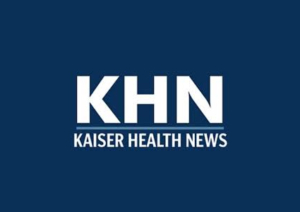MACPAC Meets
The Medicaid and CHIP Payment and Access Commission met for two days last week in Washington, D.C.
 The following is MACPAC’s own summary of the sessions.
The following is MACPAC’s own summary of the sessions.
Hospital payment was a key focus of MACPAC’s January meeting with the Commission voting on Thursday to approve two sets of recommendations, the first addressing the structure of disproportionate share hospital (DSH) allotment reductions and the second directed to improving compliance with upper payment limit requirements. Both sets of recommendations are slated for inclusion in MACPAC’s March 2019 Report to Congress on Medicaid and CHIP.
Later that morning, the Commission discussed a study on performance and return on investment for state program integrity strategies. This session was originally scheduled for the December meeting. Following a break for lunch, the Commission was briefed on a new report by Mathematica Policy Research, under contract to MACPAC, regarding beneficiary enrollment in the Financial Alignment Initiative, which is testing new approaches to integrating care for people who are dually eligible for Medicaid and Medicare. Later, staff presented an analysis of the factors affecting physician decisions to accept new Medicaid patients.
Friday’s sessions opened with a panel of experts discussing how utilization management policies are applied to medication-assisted treatment (MAT). Under the SUPPORT for Patients and Communities Act (P.L. 115-271), MACPAC is required to study utilization management policies related to MAT and report on these by late October 2019. The meeting concluded with its third and final session on hospital payment: how to account for third-party payments in the DSH definition of Medicaid shortfall.
Supporting the commissioners’ deliberations were the following presentations prepared by MACPAC staff.
- Improving the Structure of Disproportionate Share Hospital Allotment Reductions: Review of Chapter and Recommendation Drafts for the March 2019 Report
- Upper Payment Limit Compliance: Review of Draft Recommendations in the March 2019 Report
- Measuring Performance and Return on Investment for Program Integrity Strategies
- Factors Affecting Beneficiary Enrollment in the Financial Alignment Initiative
- Physician Acceptance of New Medicaid Patients: New Findings
- Utilization Management of Medication-Assisted Treatment
- Accounting for Third-Party Payments in the Disproportionate Share Hospital Definition of Medicaid Shortfall
Because SNAP members serve so many Medicaid patients, MACPAC’s deliberations are especially relevant to them because its recommendations often find their way into future Medicaid and CHIP policies.
MACPAC is a non-partisan legislative branch agency that provides policy and data analysis and makes recommendations to Congress, the Secretary of the U.S. Department of Health and Human Services, and the states on a wide array of issues affecting Medicaid and the State Children’s Health Insurance Program.
 While many, including members of Congress, insist that the administration cannot move forward with such a proposal without legislation, others suggest that the administration may offer states the opportunity to participate in Medicaid block grants voluntarily, by seeking a federal waiver. What remains to be seen is whether the prospect of greater flexibility to shape their own Medicaid programs is sufficient to entice states to participate in an approach that almost certainly would result in less federal money for those programs.
While many, including members of Congress, insist that the administration cannot move forward with such a proposal without legislation, others suggest that the administration may offer states the opportunity to participate in Medicaid block grants voluntarily, by seeking a federal waiver. What remains to be seen is whether the prospect of greater flexibility to shape their own Medicaid programs is sufficient to entice states to participate in an approach that almost certainly would result in less federal money for those programs. SNAP’s letter addressed three aspects of the proposed regulation: payment rate ranges, directed Medicaid payments, and Medicaid pass-through payments. The overall theme underlying SNAP’s comments was that the proposed changes represent positive steps but could be taken further to provide additional flexibility for Pennsylvania’s Medicaid program to take stronger steps to ensure the ability of Pennsylvania safety-net hospitals to serve their communities.
SNAP’s letter addressed three aspects of the proposed regulation: payment rate ranges, directed Medicaid payments, and Medicaid pass-through payments. The overall theme underlying SNAP’s comments was that the proposed changes represent positive steps but could be taken further to provide additional flexibility for Pennsylvania’s Medicaid program to take stronger steps to ensure the ability of Pennsylvania safety-net hospitals to serve their communities. While the court conceded that CMS has the authority to address 340B payments, it found that CMS’s drastic payment cuts, introduced in FY 2018, “…fundamentally altered the statutory scheme established by Congress…” for determining 340B payment rates.
While the court conceded that CMS has the authority to address 340B payments, it found that CMS’s drastic payment cuts, introduced in FY 2018, “…fundamentally altered the statutory scheme established by Congress…” for determining 340B payment rates. According to Kaiser, for-profit companies that sub-contract with Medicaid managed care organizations to review requests for services often deny care to Medicaid patients to save money for the MCOs that employ them and to benefit themselves financially.
According to Kaiser, for-profit companies that sub-contract with Medicaid managed care organizations to review requests for services often deny care to Medicaid patients to save money for the MCOs that employ them and to benefit themselves financially.
 According to the document,
According to the document,
 Included in this edition are articles about:
Included in this edition are articles about: